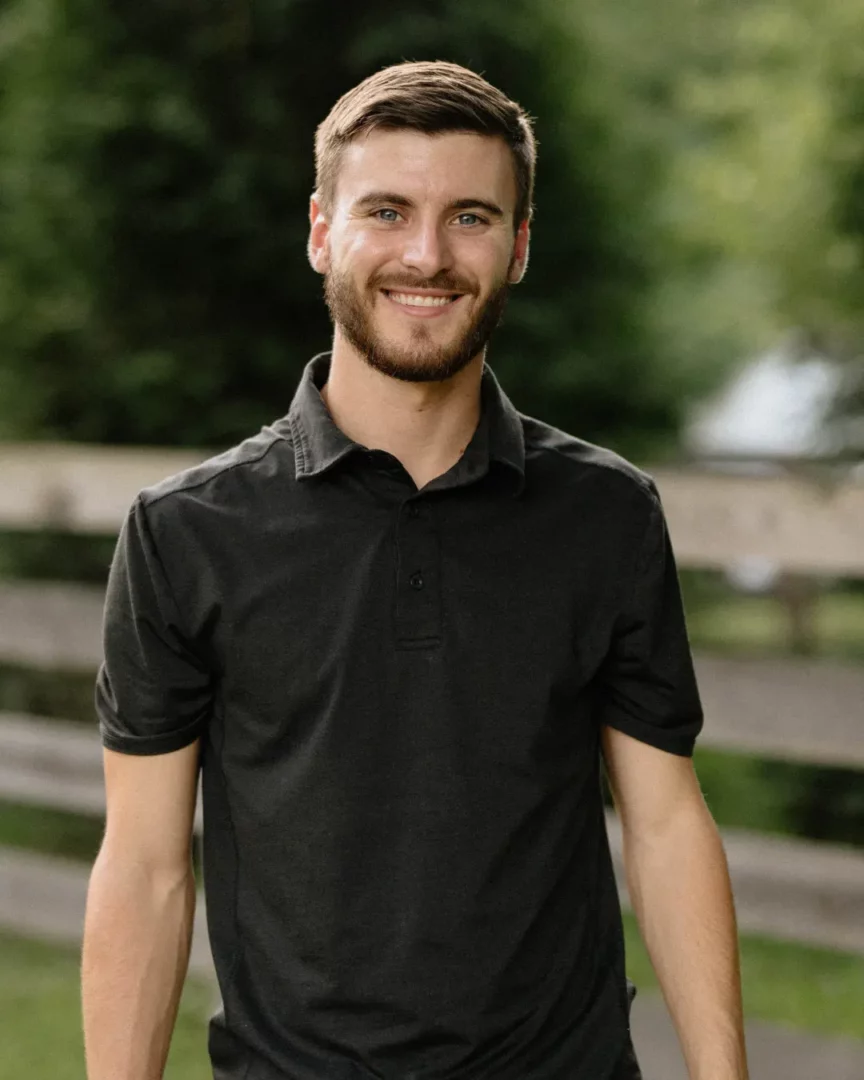We recently had the chance to connect with Caleb Guilliams and have shared our conversation below.
Hi Caleb, thank you for taking the time to reflect back on your journey with us. I think our readers are in for a real treat. There is so much we can all learn from each other and so thank you again for opening up with us. Let’s get into it: What is a normal day like for you right now?
Most mornings start with my wife and Vivi, our 16-month-old daughter. She’s at the stage where every day she’s discovering something new, and it’s just the best. Whether it’s her giggling at breakfast or toddling around the living room, those little moments set the tone for my whole day. I try to be really intentional about carving out that family time before diving into work.
From there, my day usually shifts into leading BetterWealth. I’ll spend time with our team on strategy calls, reviewing projects, filming YouTube videos, or meeting with partners to push our business forwards. I’m involved in a few big projects right now, so my focus is on creating clarity for our team and making sure we’re building things that serve people really well.
I also try to protect blocks of time for reading, writing, or just thinking because I’ve learned that my best contribution to the business is casting vision and creating frameworks that simplify money.
Evenings are about reconnecting with my family, playing with Vivi, catching up with my wife, and winding down. And somewhere in there, I’m usually jotting down ideas for the next day, because my brain doesn’t really turn off when it comes to finding better ways to help people live intentionally.
So yeah, a normal day for me right now is a balance of family, business, and a lot of intentionality, and I wouldn’t trade it for anything.
Can you briefly introduce yourself and share what makes you or your brand unique?
I’m Caleb Guilliams, the founder and CEO of BetterWealth, where our mission is to help people gain clarity, control, and confidence with their money so they can live more intentionally.
I got my start in banking at just 17 years old, and by 19 I became one of the youngest people ever to run a bank’s investment and insurance division. What I saw sitting across from clients, hard-working, successful people who still felt lost or out of control financially, inspired me to launch BetterWealth in 2017.
At BetterWealth, we’re known for the AND Asset, our approach to designing overfunded life insurance so your dollars can grow safely while still being available for opportunities and investments. But what really makes us unique is our focus on simplicity and purpose. I believe money is just a tool, and the goal isn’t accumulation, it’s living with intention.
Today, I spend much of my time teaching these principles through YouTube, speaking, and my book The AND Asset. Because I honestly believe that if people really understood how some of these strategies worked, there would be a line out the door.
Appreciate your sharing that. Let’s talk about your life, growing up and some of topics and learnings around that. What’s a moment that really shaped how you see the world?
One of the biggest moments that shaped how I see the world was when I first really discovered life insurance, not the way most people think of it, but the way it actually works when it’s designed properly.
I was young, working at the bank, and I started digging into how the wealthy were using their money. I’d read books, I’d look at balance sheets, and I kept running into this thing that didn’t make sense to me at first: permanent life insurance. And I’ll be honest, at the time, I thought life insurance was just about paying a death benefit when someone passed away. That’s what most people think.
But the more I studied, the more I ran numbers, the more I listened to people who were a lot wiser than me, the more I realized: this is not just about dying. This is about building a system while you’re alive that gives you control, liquidity, and long-term compounding—all while still protecting your family.
And I remember saying to myself, and I still say this today, “If people really understood this product, there would be a line out the door.” Because the reality is, most people are comparing life insurance to an investment. They ask, “What’s the rate of return?” But that’s the wrong question. It’s not about return, it’s about results. It’s about what your dollar can do for you, grow, and be used at the same time.
That discovery blew my mind. It made me realize that the financial industry had been teaching half-truths for decades. And it’s why I’ve devoted so much of my career to helping people rethink money through frameworks like the AND Asset. Because if you knew you could have safety, growth, liquidity, and tax advantages, all with the same dollar, you’d never look at your financial plan the same way again.
So yeah, that moment of uncovering what life insurance really is totally reshaped how I see the world. It taught me that sometimes the most misunderstood tools are the most powerful and if you’re willing to look deeper, you can find clarity and control where most people only see complexity.
If you could say one kind thing to your younger self, what would it be?
A moment that really shaped how I see the world happened when I was a teenager working at the bank.
I’ll never forget sitting across from a couple who had done “all the right things.” They worked hard, they saved diligently, they listened to the conventional advice. And yet, here they were stressed, overwhelmed, and honestly a little hopeless about their financial future.
That was the first time it really hit me: you can be smart, disciplined, and successful by the world’s standards, and still feel totally out of control when it comes to your money. That conversation flipped a switch in me. I realized money isn’t just math; it’s emotional, it’s spiritual, it’s tied to people’s sense of purpose and peace.
That moment planted the seed for everything we do at BetterWealth. It made me obsessed with clarity and control, with creating systems where people’s dollars actually serve their life rather than their life serving their dollars. It’s why I care so much about intentional living. Because if you don’t know what result you’re after, it doesn’t matter how “good” you are with money, you’ll still feel like you’re losing.
That one interaction at the bank shaped how I see everything: wealth is not about numbers in an account. It’s about aligning money with what truly matters.
So a lot of these questions go deep, but if you are open to it, we’ve got a few more questions that we’d love to get your take on. Where are smart people getting it totally wrong today?
I think one of the biggest areas where really intelligent, really successful people get it wrong is they optimize for the wrong scoreboard.
What do I mean by that? Smart people are great at chasing growth, building businesses, investing, scaling. They can engineer tax strategies and portfolio allocations all day long. But often, they don’t pause to ask: “What is the result I actually want my money to create?”
So instead of money being a tool for clarity, confidence, and control, it becomes this endless game of accumulation. They’ve got more spreadsheets, more complexity, and ironically, more stress.
Another place they get it wrong is thinking they can outsmart uncertainty. They’ll say things like, “I’ll beat the market” or “I don’t need insurance because I can self-insure.” But life has a way of reminding us that risk, taxes, and time don’t play by our models. The goal isn’t to be the smartest in the room. It’s to design a system where even if you’re wrong, you’re still okay.
And then the last thing I’ll say is smart people often underestimate simplicity. They think a strategy has to be complicated to be powerful. But in my experience, the people with the most clarity, the ones who know their cash flow, who know what dollars are doing multiple jobs, who know what results they’re after, those are the people who win.
So, where are smart people getting it wrong? They’re mistaking complexity for mastery. They’re confusing accumulation with intentional living. And they’re forgetting that the smartest strategy is often the simplest one that aligns with their “why.”
Before we go, we’d love to hear your thoughts on some longer-run, legacy type questions. If you laid down your name, role, and possessions—what would remain?
I think about this a lot. And honestly, if you strip everything away, BetterWealth, my book, the studio, the titles, even my bank accounts, what’s left is who I am at the core.
And for me, that’s my values, my relationships, and the way I show up for other people. Because at the end of the day, wealth isn’t the car you drive or the business card you hand out. Wealth is how intentional you are with the time, the energy, the influence, and yes, the dollars you’ve been given.
If you take away my name and my role, you’d still find someone who’s curious, who asks a ton of questions, who wants to bring clarity. If you took away my possessions, you’d still see the way I love my family, the way I serve my team, and the way I want to elevate people around me.
That’s why I’m so passionate about redefining wealth not as accumulation, but as intentional living. Because if you can live on purpose without the labels or the stuff, then good things are going to happen.
And maybe even the most important thing to remember is this: you have a gift. And when everything else is gone, your gift, the way you serve, the way you love, the way you live intentionally, that’s what remains.
Contact Info:
- Website: https://betterwealth.com
- Instagram: https://www.instagram.com/calebguilliams
- Linkedin: https://www.linkedin.com/in/calebguilliams
- Youtube: https://www.youtube.com/c/BetterWealth
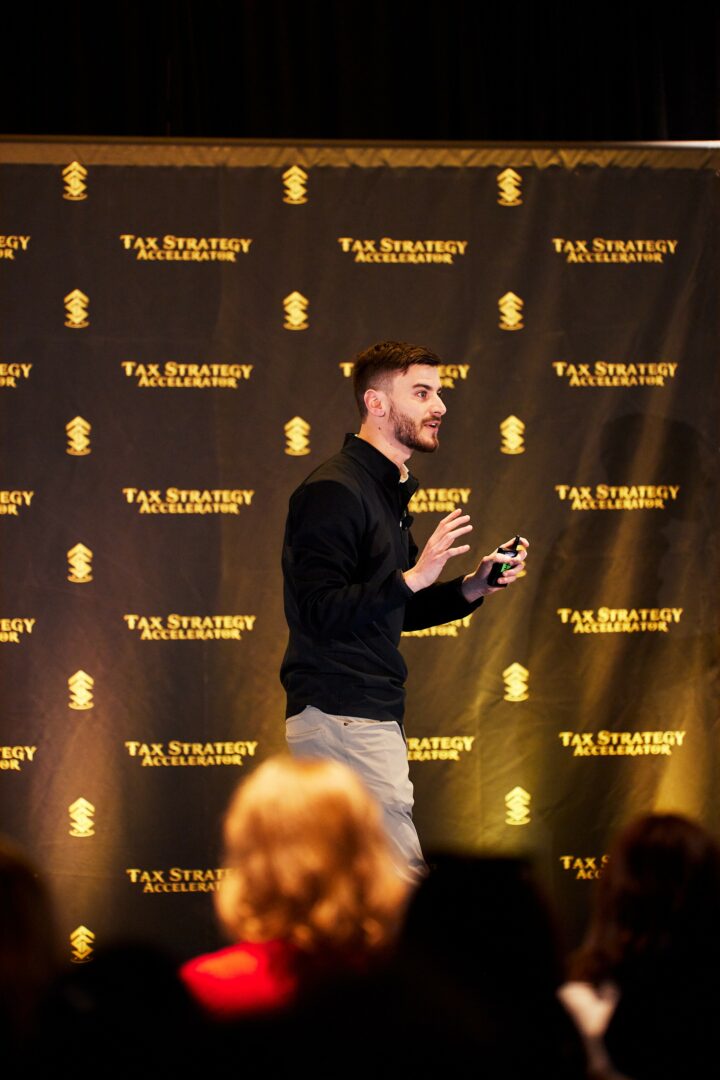
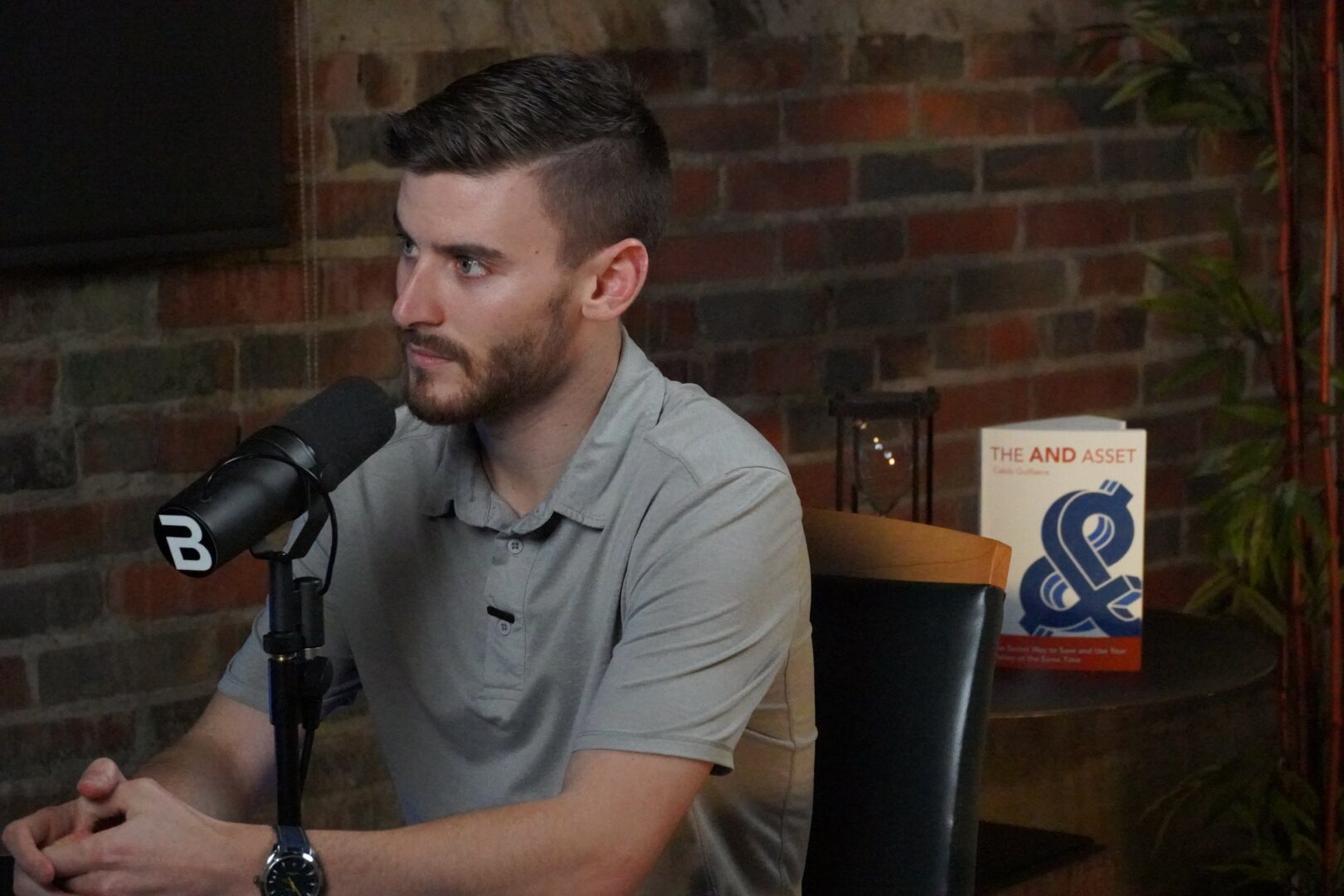

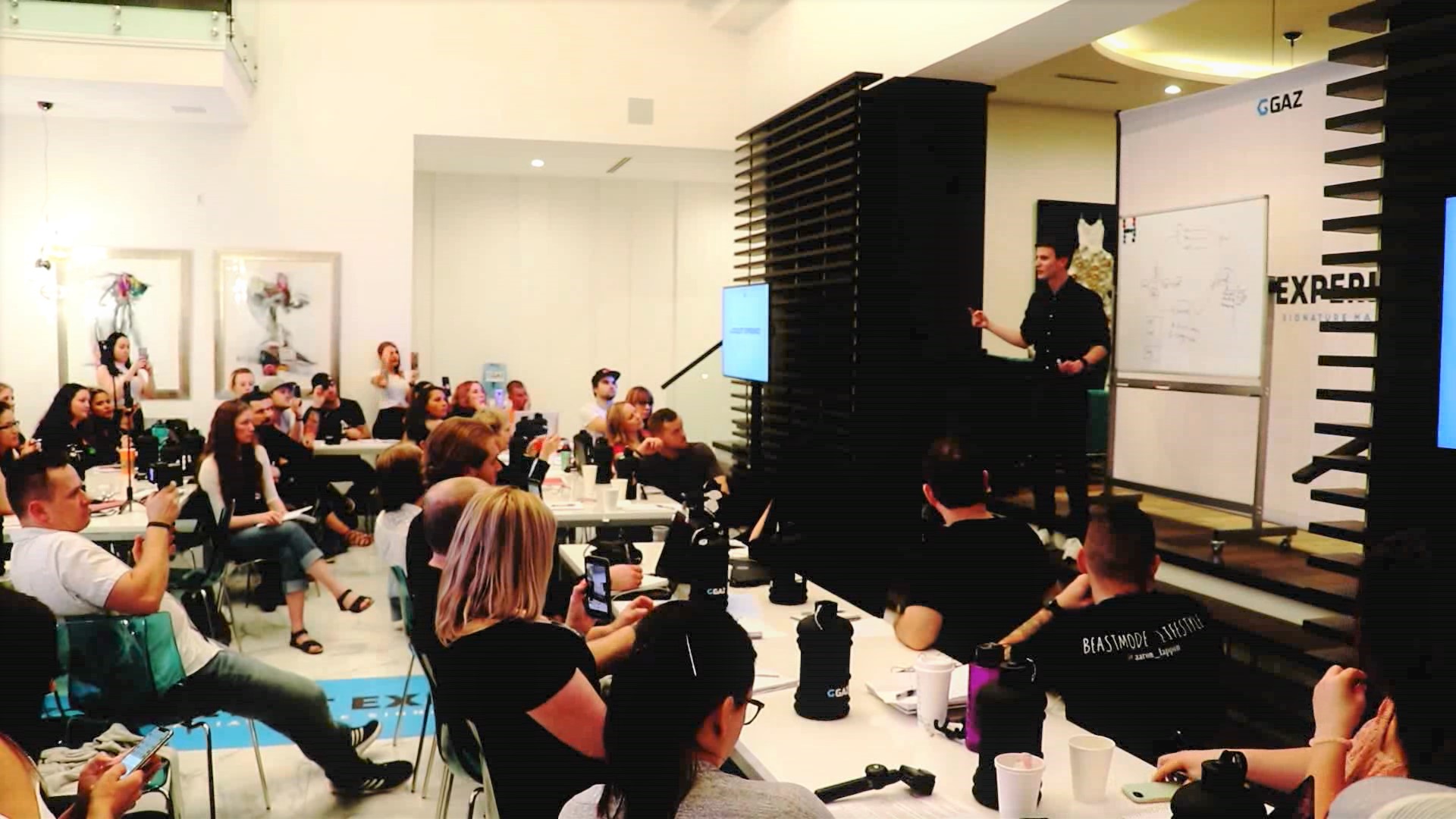
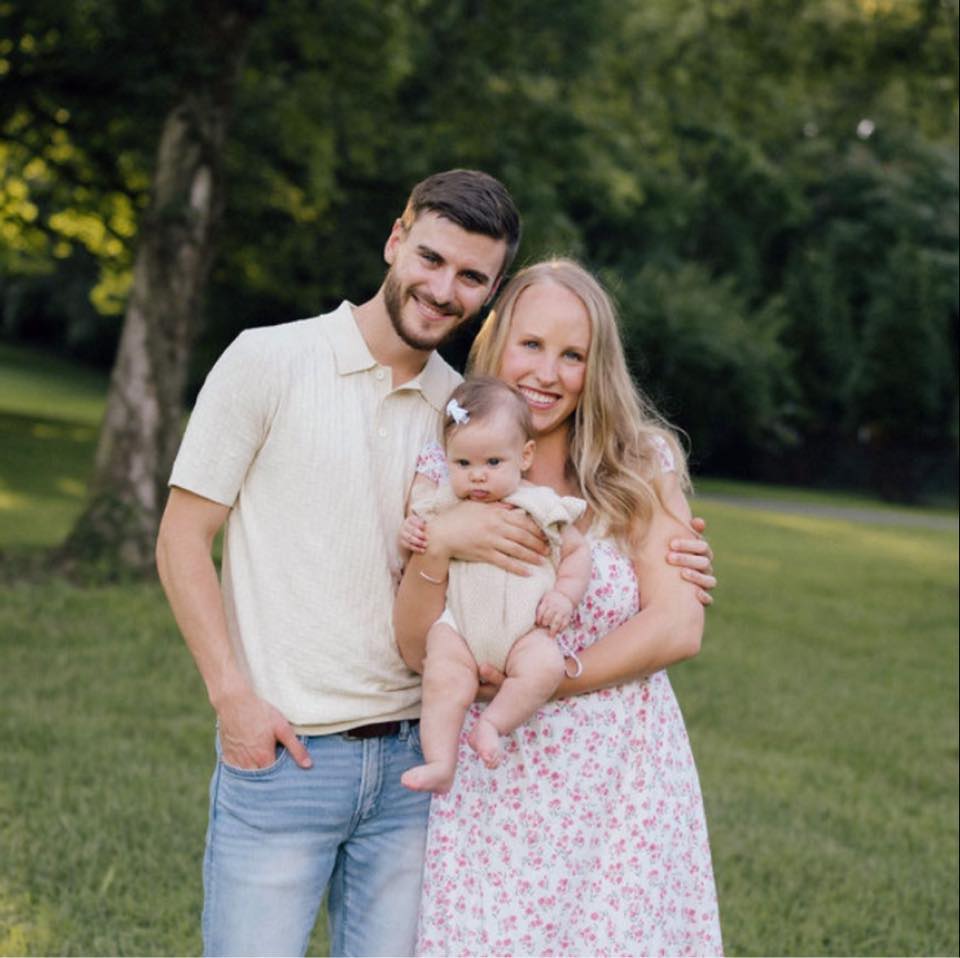
Image Credits
Stage with orange dot photo – @jamesfloydslife
Podcast Photo – @jamesfloydslife
so if you or someone you know deserves recognition please let us know here.

